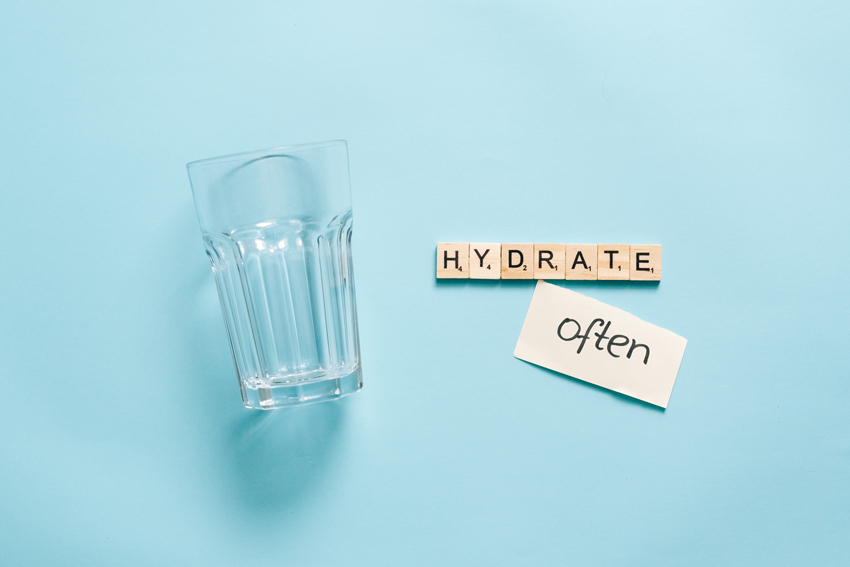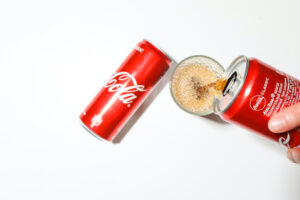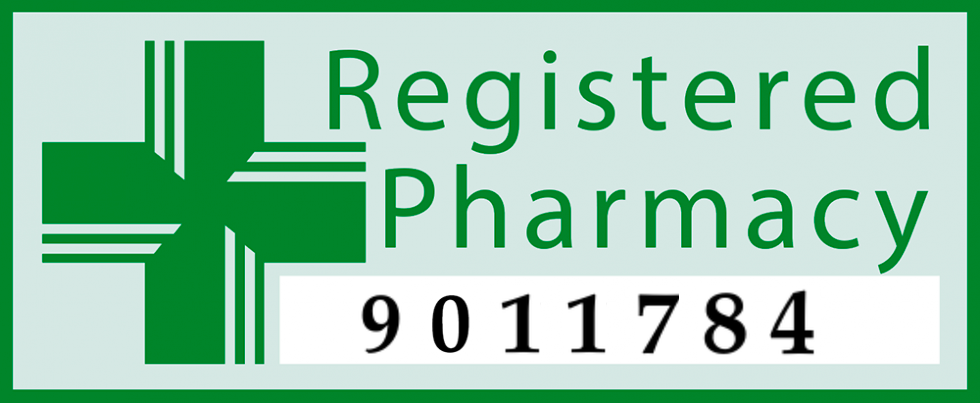Good hydration is important all of the time, not just when you’re going through a weight management program.
However, when you’re trying to lose weight, you may be increasing your physical activity, which also means that you need to increase the amount of water that you drink to avoid becoming dehydrated.
In this article, we take a look at why it’s important to drink water, which kinds of drinks do and don’t count to your daily fluid intake, how much you should be drinking per day, and we even briefly explain water retention and what this could mean for weight loss.
Why is it important to drink water?
Without water, humans would die within a few days, in fact, most mammals are the same.
Water is one of the most essential elements for our survival, and if we don’t have enough of it on a regular basis, it can lead to some serious problems, which in severe cases can be fatal.
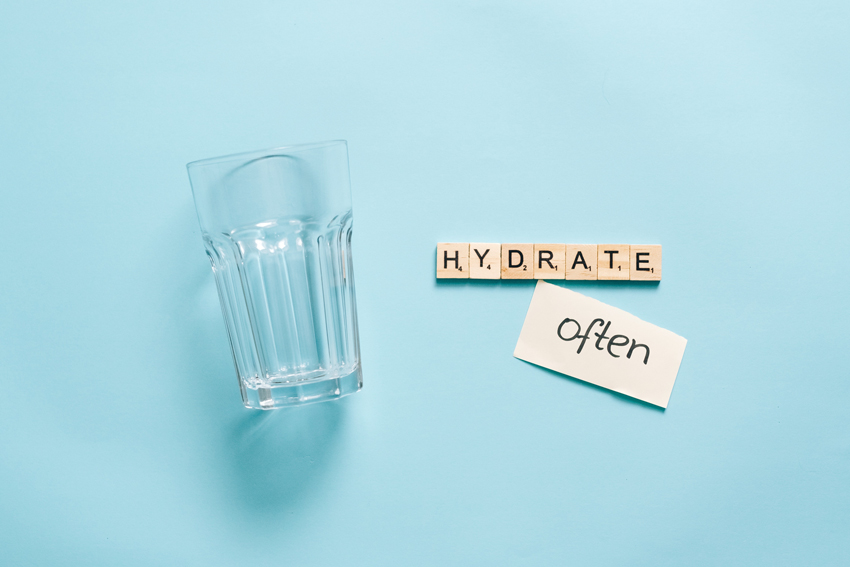
Humans are made up of roughly 60-70% water, and we lose some each day through regular activities such as breathing, talking, sweating, crying and going to the toilet.
In fact, on average we lose around 2.5 litres of water per day – and most of that is lost through urination.
If we don’t replenish this fluid loss each day, then we can easily become dehydrated which in certain circumstances can be incredibly dangerous.
What is dehydration?
There are several different definitions of dehydration, such as the loss of body water due to restricting fluid intake, excessive fluid loss, or certain medications.
Generally though, dehydration in humans is when at least 1% of body mass is lost without there being a negative energy balance (in other words, losing water weight without having a calorie deficit).
Dehydration can quickly become quite dangerous if you don’t take steps to rehydrate yourself, such as drinking water as soon as you can.
It can take just 13 hours for signs of dehydration to start showing and considering that the average adult sleeps for eight hours each day, it’s no wonder that it’s important to start and end the day with a glass of water in order to stay hydrated overnight (particularly if you snore or breathe through your mouth whilst you sleep).
Signs and symptoms of dehydration
Luckily, dehydration is fairly easy to spot, with early symptoms telling most people that they should drink more without having to consult a doctor.
Some of the signs and symptoms of dehydration include:
- Constipation
- Dark urine
- Headache
- Increased thirst
- Dry mouth
- Tiredness
- Muscle tiredness
You may become constipated when you’re dehydrated because there’s less water in your body for stools to absorb, and a lack of water in stools can cause them to become hard, dry and difficult to pass, resulting in constipation (which can often be fairly painful!).
When it comes to urine, the darker the colour, the more concentrated it is, so if you notice that your urine is fairly dark, you should start drinking more water until it’s a fairly pale colour – like straw.
As a general rule, if you feel thirsty, you should drink. However, not all drinks and fluids count towards your daily intake.
How much water should you drink a day?
Because we lose around 2.5 litres of water per day, we should aim to drink around this much to replenish our body’s water stores.
The UK government recommends that as adults, we should be drinking 6-8 glasses of fluid each day, which roughly equates to around 2 litres (though drinking more than this won’t usually do you any harm – particularly if you’re more physically active than usual).
It’s generally recommended that we get our 2 litres of fluid from drinks such as water, low-fat milk, sugar-free drinks (such as some cordials and flavoured water), tea, and coffee.
Fruit juice also counts towards some of your fluid intake, but it’s only recommended to have 150ml of fruit juice each day due to the high concentration of sugars that most juices contain.
However, a glass of fruit juice will also count as one of your portions of fruit and vegetables (though it only counts once, no matter how many glasses of fruit juice you drink).
Alcoholic drinks also don’t count towards your daily intake of fluid.
Although they do contain water, alcoholic drinks actually have a diuretic effect (in other words, it helps to rid your body of water and salt, which isn’t so good if you’re trying to stay hydrated).
Because of this, they can actually negatively affect your hydration levels, so aren’t counted towards your 8 glasses (or 2 litres) of fluid per day.
If you’re increasing the amount that you exercise, you should also be increasing your fluid intake, as increased physical activity can lead to more water being lost through sweat.
Whenever you exercise, you should make sure that you’re well-hydrated before, during and after your workout, especially if you’re working at a moderate or high intensity for any amount of time.
Always make sure that enough water will be available for the amount of time that you’re planning to exercise for.
For example, if you’re going on a hike that lasts a few hours and only have a 500ml bottle of water with you, you may need to either walk for a shorter amount of time or pack more water.
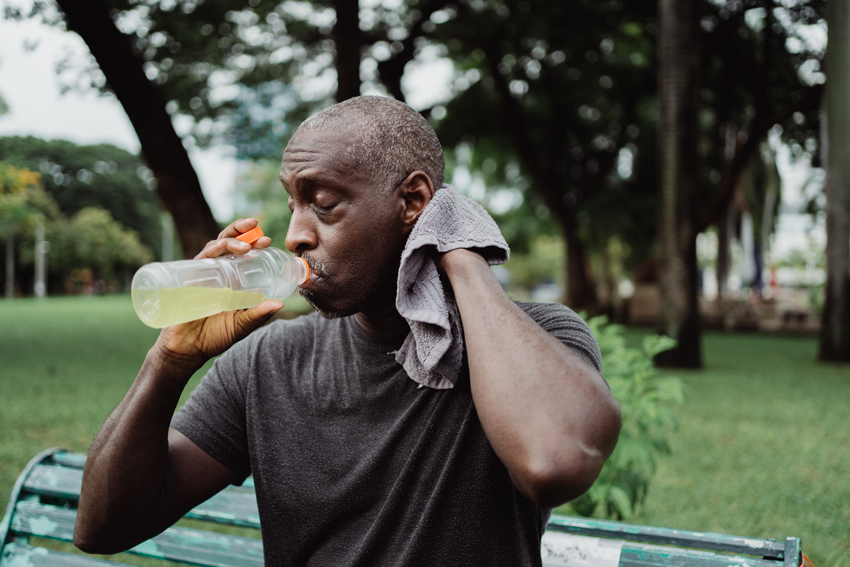
Can you drink too much water?
In some rare situations, some people have experienced over-hydration, meaning that they’ve drunk more water than their body can handle, which can lead to an electrolyte imbalance and various unpleasant symptoms.
However, most people never experience water intoxication, as you would need to drink a large volume of water in a small amount of time.
This is why it’s important to drink regularly rather than drinking all of your daily water intake in one go, as this can put you at risk of being overhydrated at one point of the day, and dehydrated at another.
If your urine is clear with no yellow tint to it at all, this could be a sign that you’re drinking too much water.
Overhydration can also cause dizziness, nausea, vomiting and confusion amongst other symptoms.
Some medications can make you more thirst which can increase your water intake, but generally, most people won’t experience over-hydration unless there’s a serious problem that causes them to drink large volumes of water in a short amount of time, or if they’ve taken certain illegal medications that are known to cause extreme thirst.
Does drinking water help you to lose weight?
For some people, increasing their water intake can help with weight loss for a variety of reasons.
Firstly, drinking water can help to naturally suppress your appetite as it fills your stomach (though you should try to avoid skipping a meal if you’re hungry).
By filling some of your stomach’s available space with water, you may be less likely to start snacking between meals or late at night, especially if you’ve already eaten your calorie allowance for the day.
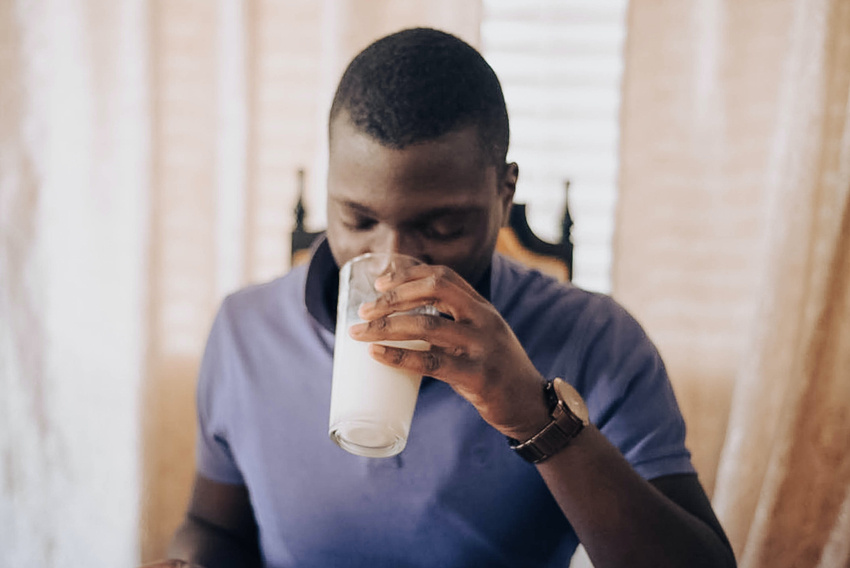
Water also helps to expel any of our body’s waste products, which often can’t be filtered out properly if we’re dehydrated. Water and good hydration help to keep everything moving along.
We already know that dehydration can cause constipation, which can lead to bloating and a feeling of fullness.
By drinking more water, you can avoid constipation and a build-up of any other waste products, which will help you to feel healthier and more energetic.
Plus, when we feel healthy, we’re more likely to move more and exercise rather than if we feel sluggish and bloated.
Drinking water instead of other beverages may also increase your overall calorie intake.
For example, instead of drinking a takeaway coffee or hot chocolate, you could replace it with water to reduce your calorie consumption.
Another way in which drinking more water can help with weight loss is by reducing water retention.
This may seem contradictory but is explained further in the article.
What is water retention?
Water or fluid retention (sometimes referred to medically as oedema) usually happens when there is an excessive build-up of fluid in the body that hasn’t been expelled for whatever reason.
There are several conditions and medical issues that can cause water retention, and it usually causes symptoms such as:
- Swelling in the legs, feet, ankles and hands
- Weight gain
- Denting of the flesh when pressure is applied
- Stiff or aching joints
Some of the more common reasons for fluid retention include:
- Consuming too much salt or sugar
- Excess amounts of insulin (often caused by T2DM or a poor diet)
- Excess weight
- Sedentary lifestyle
- Dehydration
- Hormonal fluctuations (particularly in females)
- Various medications including antidepressants, NSAIDs, steroids & medicines for high blood pressure
- Kidney disease
- Heart failure
- Liver disease
- Thyroid disease
- Arthritis
Usually, fluid retention doesn’t indicate a serious problem, but there are some serious conditions that could cause it, and we would advise that you make an appointment with your GP if you experience water retention that doesn’t improve within a few days.
How to get rid of water retention
Generally speaking, most cases of water retention don’t usually require medication, particularly if they’re mild.
You can help to reduce or get rid of water retention by making small lifestyle changes such as making sure that you exercise regularly.
Exercise can help to expel excess water as sweat, as well as the fact that your circulation improves with exercise, which can also help to reduce a fluid build-up.
However, you should still remember to stay hydrated whilst exercising, even if you’re experiencing fluid retention.
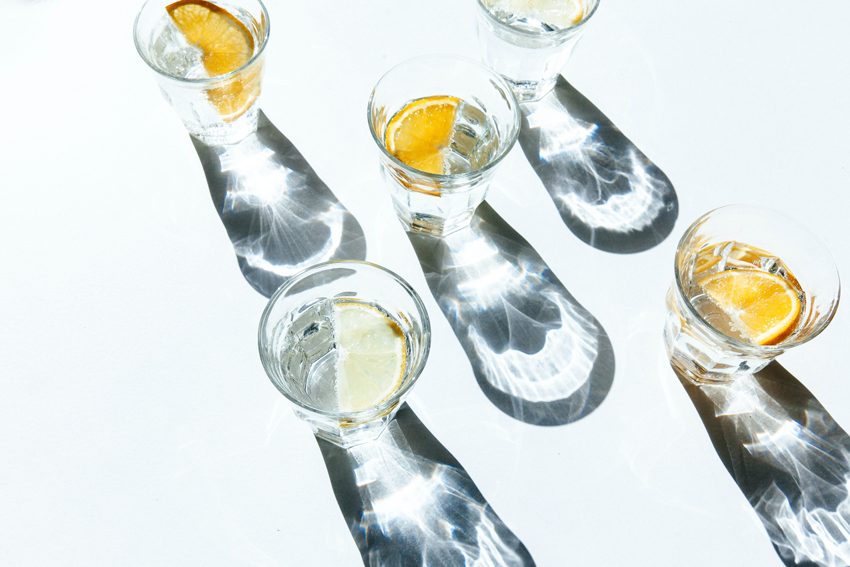
Another thing you can do to help reduce your body’s fluid levels is to consume less salt.
You can do this by checking your food labels for sodium to make sure that you aren’t consuming more than the recommended daily amount of 6g.
Excess salt in the body can contribute to dehydration, which causes the body to hold on to any excess water in order to keep homeostasis.
The same goes for carbohydrate intake, as too many carbs can mean that we’re storing unused energy as glycogen molecules – with each gram of glycogen stored, around 3g of water is retained.
Reducing your carbohydrate intake and replacing it with protein or fibre will make sure that you feel fuller for longer as well as potentially help to reduce any excess fluid in your body.
One of the main things you can do to get rid of water retention is to actually drink more water.
When we’re dehydrated, the body holds on to water, causing a natural build-up of fluid, usually in the wrong place.
By drinking more and ensuring that we’re well-hydrated at all times, the risk of water retention through dehydration is reduced.
As well as this, drinking water improves your kidney function, which in turn can help to flush out any excess water as urine, which can also help with filtering out more waste.
If all of the above methods fail to alleviate your symptoms of water retention, you should speak to your GP about whether or not diuretics may be suitable for you, and to see if there may be any underlying conditions that could be causing your fluid retention.
Summary
In summary, water is one of the most important things that we need for survival, and proper hydration can prevent a range of unpleasant and dangerous symptoms.
As humans, we need to make sure that we replenish any fluid that our bodies lose in order to keep homoeostasis (the stability of cells and organs in the body to remain healthy and functioning).
A great way to tell if you’re drinking enough water is by checking the colour of your urine in a clear container (not your toilet bowl, as this already contains water, and some cleaning products can distort the colour of your pee).
If it looks a little dark, pour yourself a glass of water, and remember –you’re aiming for a pale straw colour (but not colourless).
Hydration is also important to avoid water retention, as if our bodies are dehydrated, they can hold on to excess water.
You should make sure that you drink enough at all times to maintain homeostasis in your body, which should also help to reduce the risk of fluid retention.
Don’t forget – drinking water is underrated, don’t forget to stay hydrated!



